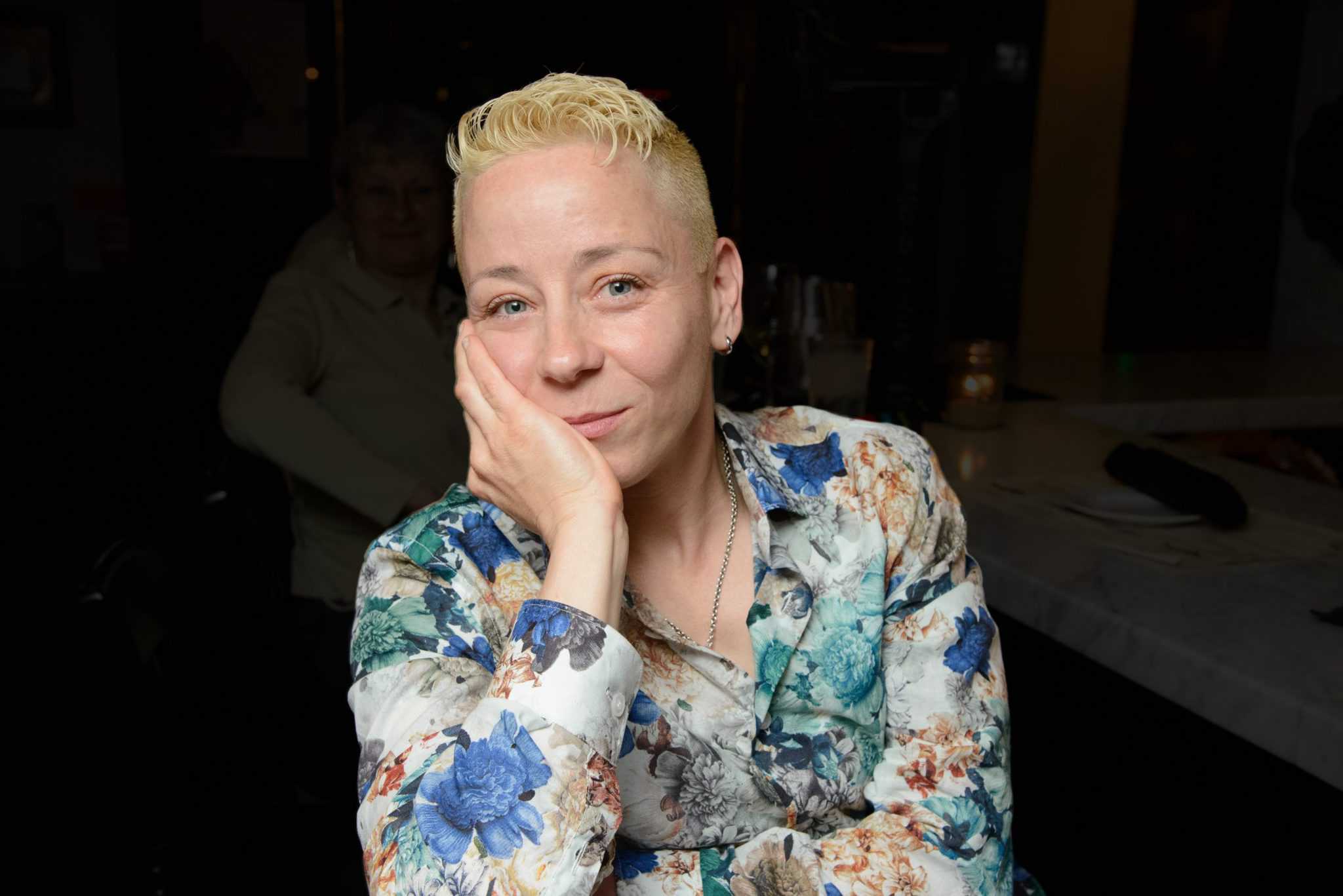What an exciting month it’s been since we announced Madison Cario as the Regional Arts & Culture Council’s incoming Executive Director come January 2019! Madison is joining us from Atlanta, Georgia, where they served as the inaugural Director of the Office of the Arts at the Georgia Institute of Technology.
While Madison will be making their way to meet with the arts and culture community once they begin their post in January, we asked them a few questions about their experience, what they’re looking forward to, and more. Read on and get to know a little more about our incoming Executive Director:
As you transition from your role as Director of the Office of the Arts at the Georgia Institute of Technology (GT), what are some takeaways you feel will guide you in your new leadership role at RACC?
I’ve always been a good listener and synthesizer of ideas, but at GT, with so many truly different ways of speaking – about the creative process, and about collaboration, I had to learn to listen differently. I had to learn, in some cases, to dream differently. I am excited to apply these fairly recently acquired skills to a new environment. I’m excited to see what challenges await and what learning will take shape.
I learned what matters most is not that I myself can articulate the vision (that is important), but when everyone within an organization can articulate the purpose and plan for the organization (once it is established), then we are cooking with gas!!!
Also, every voice matters, every language and nuance is important. At GT I learned how to start by asking people what they loved and from there we found a common bond to work together.
What you most looking forward to at RACC? How do you envision spending your first 6 months?
Listening, provoking, and listening to what the provocations generate.
What do you feel are the most pressing challenges the art and culture sector needs to address today related to diversity, equity, and inclusion? Do you feel there are questions we need to be asking that we haven’t asked already, and actions we need to take that have yet to be taken?
I believe we need to communicate and honor complexity and transparency in this conversation. We need to understand how to contextualize issues of equity and inclusion. We need to look beyond numbers and representation when using the term ‘diversity’. We need to stop telling singular stories and feel that we are providing platforms for ‘minority voices.’
I believe what is missing is the interconnectedness and relationality of differing perspectives and lived-experiences. To uncover and acknowledge implicit bias is important – but needs work in the arts, and in every system, is the step after recognition. What is needed is the collective action: the development of new systems, testing of those new systems, feedback loops, next-round testing, implementation, assessment, redesign, and deep and care-filled processes that are co-created through the lenses of equity, diversity and inclusion. These are not static or two-dimensional concepts – they are constellations within constellations.
And I like to ponder the question, once we have all the boxes checked, then what?
What’s exciting, strange, or familiar as you make your move to Portland? Is there anything particular that you’re looking forward to doing as you become a resident of the Pacific Northwest?
What is exciting? A new city, terrain, community, and the ocean (well, at least closer than Georgia). Also, sporting a new silhouette for me, and a long rain duster instead of a sunbrella!
Re Strange – Define strange.
What is familiar? Years ago I fell in love with the west coast when I lived in San Francisco for 7 years and I am thrilled to be back – it feels like a home coming of sorts. I love being outdoors, walking everywhere and of course learning more about the Pacific Coast and all the fantastic art, food and people that call Portland home.
Folks are really intrigued with your experience bringing the arts and technology sectors together. Can you talk more about that? What has been the most fun or interesting thing about working at these intersections?
When it works, it’s magic. We bridged worlds perceived to be radically different together. The interesting thing about working at these intersections is I’ve developed a constellation mapping way of connecting things that seemingly perhaps do not go together but have, at their essence, a common purpose or interest.
I also witnessed how quickly ideas can take shape when you work at the center of various creative processes simultaneously.
What was your perception of arts and culture growing up and how has it evolved?
It wasn’t for people ‘like me’. I got that message over and over again. My perception evolved greatly when I started making performances and identifying as an artist. As an arts leader I am both a champion and critic of arts and culture. I care about arts and culture deeply, enough to critique and push for evolution of the field as well. My perception about the value and identity of insider/outsider has especially evolved.
If you could time travel, what message would you leave your younger self?
This life can be everything you want and nothing you could have imagined… simply place one foot in front of the other, you will find the way.
You can sing!
What’s a question you wished someone would ask you?
How can I help you?
Why is it essential to continue your work nationally in terms of keynote speaking, leading workshops, etc?
Madison’s first day at RACC is January 14, 2019. More information about opportunities and events to meet and speak with them will come as we get closer to their arrival in Portland!


